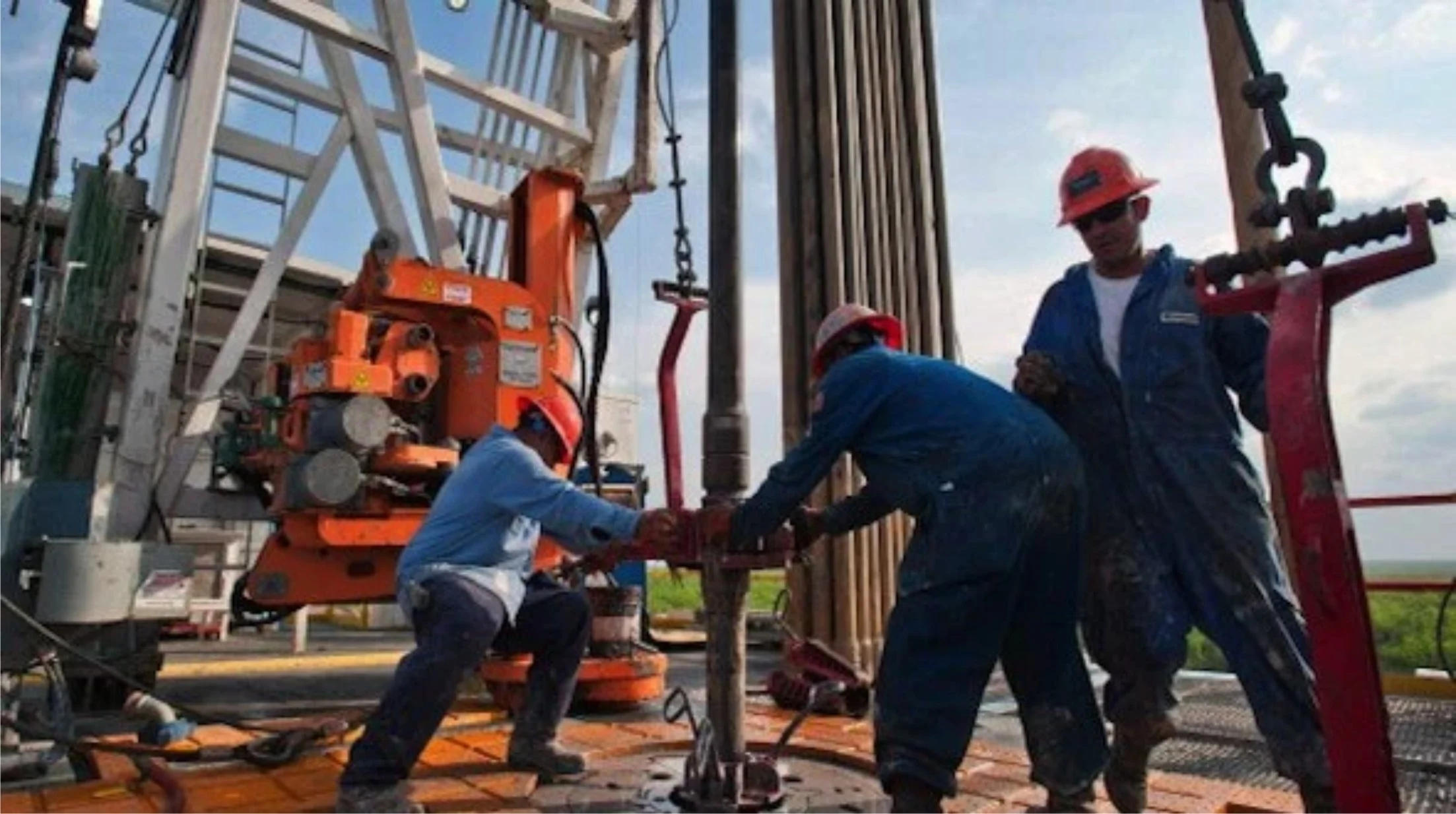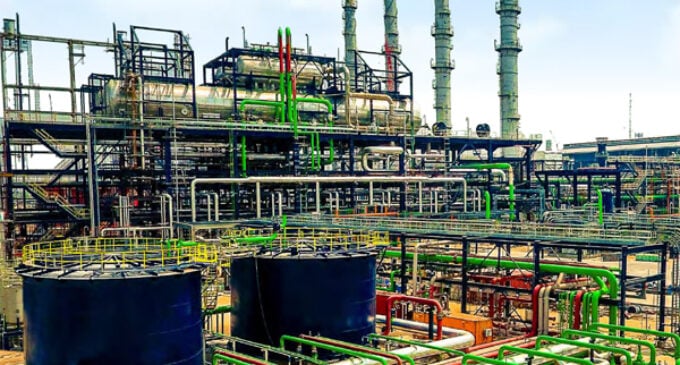The number of functional crude oil production rigs in Nigeria decreased by 37.5 per cent to just 10 operational rigs in March 2022, the Organisation of Petroleum Exporting Countries has said.
An oil rig, offshore platform, or oil and/or gas production platform is a large structure with facilities to extract, and process petroleum and natural gas that lie in rock formations beneath the seabed.
Nigeria is a strong member of OPEC and has been championing activities of the group for decades, though failing lately in meeting its monthly oil production quota as approved by the organisation.
Data from OPEC’s latest Monthly Oil Market Report for April 2022 showed that Nigeria’s operational oil rigs had been on the decline since 2019.
In its world rig count and units, OPEC stated that in 2019 Nigeria had an average of 16 functional rigs, but this dropped to 11 in 2020 and crashed further to an average of seven in 2021.
In fact, the organisation revealed that the country’s rigs dropped to as low as five in the second quarter of 2021, before picking up to 10 in the third quarter of same year, but eventually dropped again to seven in the fourth quarter of last year.
It moved up to eight functional rigs in the first quarter of this year, going by OPEC data, as the organisation’s report further showed that Nigeria’s oil rigs were eight in February 2022.
The rig count appreciated marginally in March this year to 10. Hence, the fluctuations in Nigeria’s rig counts indicated that it dropped by from an average of 16 in 2019 to 10 in March 2022, representing a decrease of 37.5 per cent.
Meanwhile, the report showed that aside from Iran which had maintained 117 rigs since 2019, some other oil-producing nations witnessed varying degrees of declines in their rig counts.
The rig counts of Saudi Arabia, Algeria, and the United Arab Emirates, for instance, also dropped from 115, 45 and 62 to 74, 30 and 41 respectively between 2019 and March 2022, according to OPEC data.
However, countries such as Angola, Venezuela and Libya, for instance, saw a marginal rise in the number of functional oil rigs in their various domains.
Amidst the drop in oil rig count for Nigeria, the country has also suffered massive decline in its crude oil production making it unable to meet its OPEC approved oil production quota since this year.
Operators in Nigeria’s oil and gas sector had also attributed the drop in oil production to oil theft, while the government had raised concerns about the exit of international oil companies from Nigeria due to the global push for net zero carbon emission.
Also an analysis of the OPEC report showed that Nigeria’s oil production had been falling since January this year.
It was observed that while the country produced 1.413 million barrels of crude oil daily in January, this dropped to 1.378 million barrels per day in February and plunged further to 1.354 million barrels per day in March.
The situation confirmed concerns by both government officials and International Oil Companies operating in Nigeria that crude oil production in the country had been on the decline since 2021.
As at March 24, 2022, the total value of Nigeria’s crude oil stolen between January 2021 and February 2022 was about $3.27bn (representing N1.361tn at the official exchange rate of N416.25 to the dollar), according figures from the Nigeria Upstream Petroleum Regulatory Commission.
International oil companies and their counterparts in Nigeria also stated recently that the massive oil theft across the country posed a threat to not just their existence, but to the Nigerian economy.
But NNPC’s Group Managing Direction, Mele Kyari, had announced recently that measurable outcomes against the massive crude oil theft in the Niger Delta would be visible in three weeks time.
Kyari had said, “As we speak now there is massive disruption to our operations as a result of the activities of vandals and criminals along our pipelines in the Niger Delta area.
“This has brought down our production to levels as low as we have never seen before. Today we are doing less than 1.5 million barrels per day simply because some criminals have decided that they should have some infractions on our pipelines.”
Nigeria’s oil production quota by OPEC has revolved around 1.8 million barrels per day. The country has repeatedly missed this target due to oil theft.
“And that clearly is the biggest form of business disruption that we are facing today,” the NNPC boss had stated.
He added, “This kind of engagement, the certifications that we have today around our systems and processes should be able to respond to this. And part of the response is to bring in the best framework possible to contain this situation.
“I’m happy to tell us that enormous work is going on between us and the Federal Government recognised security agencies, our partners, particularly those on the corridors that are impacted, and also the community members.
“And I’m very optimistic that within the next two to three weeks some very measurable outcomes will come so that our businesses will continue. As we speak now, the Nigerian Navy is launching a massive operation to contain oil theft in the Niger Delta.”

 News3 years ago
News3 years ago
 Entertainment2 years ago
Entertainment2 years ago
 News3 years ago
News3 years ago
 Privacy3 years ago
Privacy3 years ago
 Sports2 years ago
Sports2 years ago
 Entertainment2 years ago
Entertainment2 years ago
 News3 years ago
News3 years ago
 Opinion3 years ago
Opinion3 years ago





